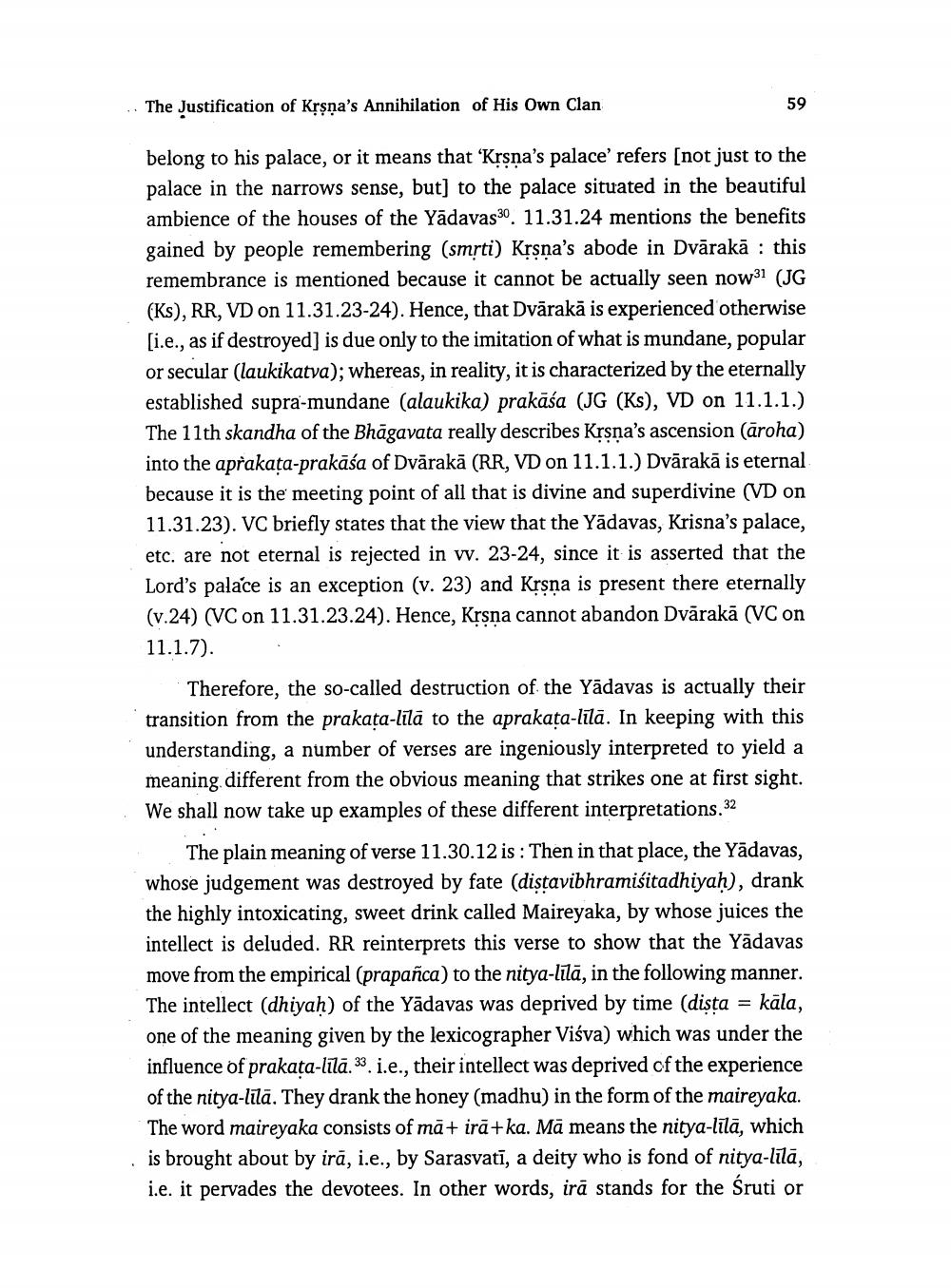________________
. The Justification of Krşņa's Annihilation of His Own Clan
belong to his palace, or it means that ‘Krsna's palace' refers (not just to the palace in the narrows sense, but] to the palace situated in the beautiful ambience of the houses of the Yādavas30. 11.31.24 mentions the benefits gained by people remembering (smrti) Krsna's abode in Dvārakā : this remembrance is mentioned because it cannot be actually seen now31 (JG (Ks), RR, VD on 11.31.23-24). Hence, that Dvārakā is experienced otherwise [i.e., as if destroyed) is due only to the imitation of what is mundane, popular or secular (laukikatva); whereas, in reality, it is characterized by the eternally established supra-mundane (alaukika) prakāśa (JG (Ks), VD on 11.1.1.) The 11th skandha of the Bhāgavata really describes Krsna's ascension (āroha) into the aprakata-prakāśa of Dvārakā (RR, VD on 11.1.1.) Dvārakā is eternal because it is the meeting point of all that is divine and superdivine (VD on 11.31.23). VC briefly states that the view that the Yādavas, Krisna's palace, etc. are not eternal is rejected in w. 23-24, since it is asserted that the Lord's palace is an exception (v. 23) and Krsna is present there eternally (v.24) (VC on 11.31.23.24). Hence, Krsna cannot abandon Dvārakā (VC on 11.1.7).
Therefore, the so-called destruction of the Yādavas is actually their transition from the prakata-lītā to the aprakața-līlā. In keeping with this understanding, a number of verses are ingeniously interpreted to yield a meaning different from the obvious meaning that strikes one at first sight. We shall now take up examples of these different interpretations. 32
The plain meaning of verse 11.30.12 is: Then in that place, the Yādavas, whose judgement was destroyed by fate (distavibhramiśitadhiyah), drank the highly intoxicating, sweet drink called Maireyaka, by whose juices the intellect is deluded. RR reinterprets this verse to show that the Yādavas move from the empirical (prapanca) to the nitya-lītā, in the following manner. The intellect (dhiyah) of the Yādavas was deprived by time (dista = kāla, one of the meaning given by the lexicographer Viśva) which was under the influence of prakata-līlā. 33. i.e., their intellect was deprived of the experience of the nitya-līlā. They drank the honey (madhu) in the form of the maireyaka. The word maireyaka consists of mā + irā+ka. Mā means the nitya-līlā, which is brought about by irā, i.e., by Sarasvatī, a deity who is fond of nitya-līlā, i.e. it pervades the devotees. In other words, iră stands for the Šruti or




